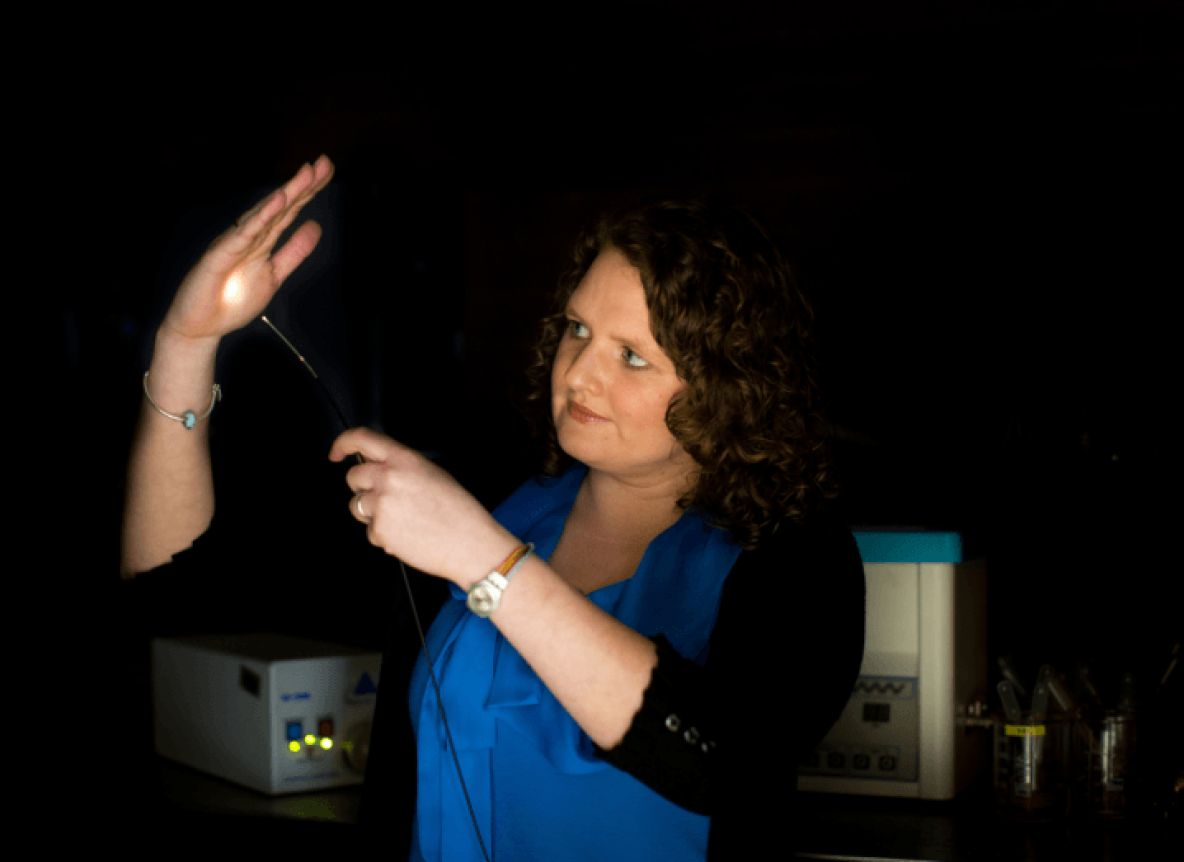

Dr Sinead O’Keeffe, Research Fellow at the Optical Fibre Sensors Research Centre, E&CE Dept. UL leads project that could reduce risk of error in some cancer treatments. Dr O’Keeffe has been awarded grant funding of almost €5m from the EU to lead this exciting new project. Heartiest congratulations to Sinead from all here in E&CE.
A cancer-focused project coordinated by the University of Limerick has been awarded grant funding of almost €5m from the EU.
The Origin project, coordinated by the University of Limerick (UL), is working to “dramatically reduce” the risk of error in the treatment of prostate and gynaecological cancer.
Origin aims to deliver more effective, photonics-enabled brachytherapy cancer treatment through advanced real-time radiation dose imaging and source localisation.
Bracytherapy is a form of radiotherapy where radiation is administered internally. It is divided into low dose rate, where the radioactive sources, known as seeds, remain implanted permanently in the patient, and high dose rate, where higher activity radiation sources are temporarily implanted.
Correct placement of the radiation source is vital to ensure adequate radiation to the target area, or tumour, while ensuring minimum exposure to nearby critical organs. In the case of gynaecological or prostate cancers, these organs are the bladder, urethra and rectal wall.
Origin’s Aim
One of the project’s goals is to develop a new optical fibre-based sensor system to support diagnostics-driven therapy through enhanced adaptive brachytherapy. Optical fibres are an ideal solution for this treatment, the team said, due to their small size, flexibility and electrical passiveness.
Leaders from academia and industry will work on a dose-monitoring system for both low dose rate and high dose rate brachytherapy, with novel algorithms to provide 3D dose imaging and source localisation.
The project has just been awarded grant funding of almost €5m from the European Union’s Horizon 2020 research and innovation programme, of which UL has received close to €1m.
Beginning In January 2020
Principal investigator Dr Sinéad O’Keeffe said: “The Origin system will be integrated into existing clinical brachytherapy treatment planning and delivery systems to confirm that the dose prescribed to the tumour is achieved, whilst ensuring the dose to organs at risk is within acceptable limits.”
As well as serving as principal investigator on this project, O’Keeffe is also a Royal Society and Science Foundation Ireland research fellow at UL’s Optical Fibre Sensors Research Centre and a member of UL’s Health Research Institute.
“This [project] will provide for optimised dose-led, patient-oriented, personalised treatment plans leading to improved patient outcomes and prevention of treatment errors, with the potential to reduce the overall risk of treatment error by 55pc,” she added.
“Taking manufacturability into consideration from the outset will ensure that Origin establishes Europe at the forefront of brachytherapy system development and photonics manufacturing.”
The project is due to begin on 1 January 2020 and will last for three years. UL will also partner with the Galway Clinic in the development of the Origin system.
Outside of Ireland, the university will partner with Vrije University in Brussels, DoseVue NV, Queen’s University Belfast, Centre Antoine Lacassagne, Eckert & Ziegler BEBIG and the University of Insubria.